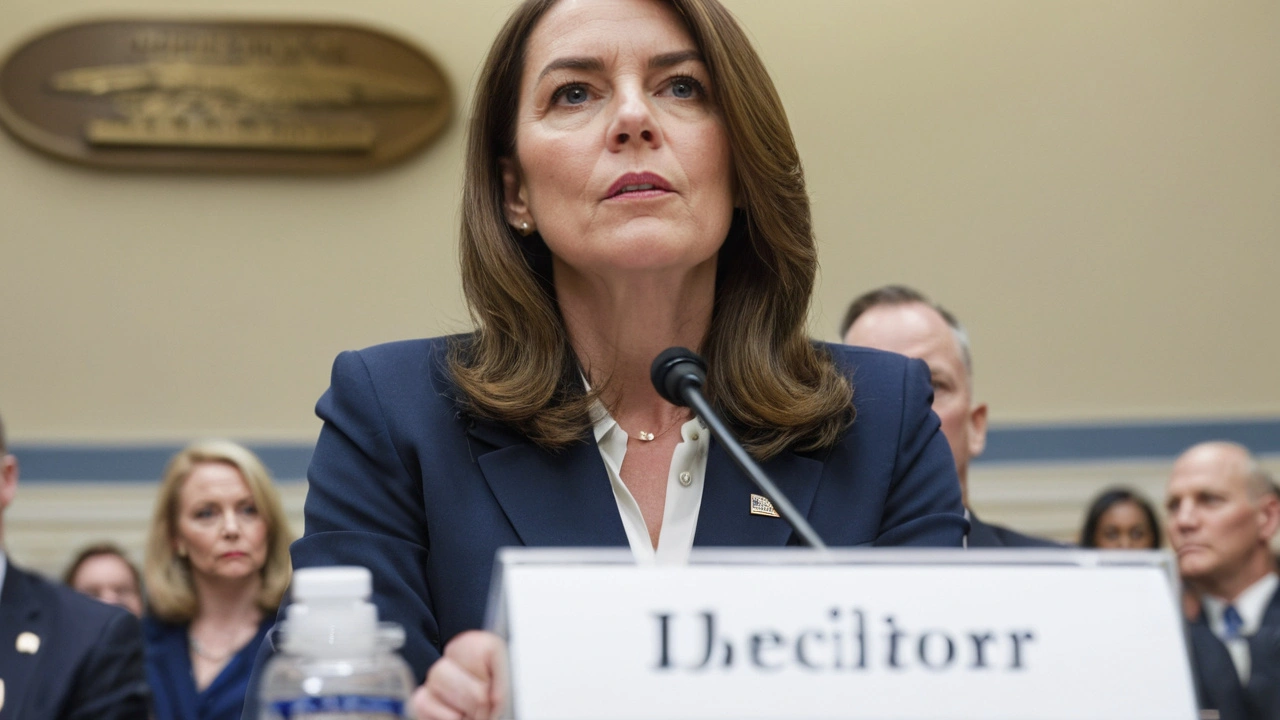Secret Service Director Faces Intense Scrutiny Following Trump Assassination Attempt at Pennsylvania Rally
In a shocking turn of events, the director of the Secret Service, Kimberly Cheatle, is facing immense pressure and scrutiny after an attempted assassination on former President Donald Trump at a rally in Pennsylvania on July 13. The incident has not only resulted in the death of one attendee but has also left Trump and two others injured. This event has cast a glaring spotlight on the security protocols of the Secret Service.
On the fateful day of the rally, a 20-year-old assailant named Thomas Matthew Crooks managed to breach security measures and positioned himself on a rooftop. From this advantageous position, Crooks opened fire, prompting immediate chaos and horror among the attendees. Many are now questioning the adequacy of the Secret Service's security procedures, especially given the assassination attempt on such a high-profile individual.
Calls for Resignation Amid Security Failures
In the aftermath of the attack, there has been a growing call for Kimberly Cheatle's resignation. Critics argue that the security lapses which allowed Crooks to ascend to his vantage point were inexcusable. These concerns are compounded by reports that the Secret Service had previously declined requests from Trump's campaign for enhanced security measures at events leading up to the rally. Such refusals are now seen as significant oversights contributing to the tragic incident.
Homeland Security Secretary Alejandro Mayorkas has also weighed in, categorizing the situation as a 'failure.' His strong remarks underscore the severity of the criticisms aimed at the Secret Service and its leadership. This has intensified the pressure on Cheatle, who is now navigating a turbulent political landscape fueled by calls for accountability.
Testimony Before the House Oversight Committee
In response to the outcry, Cheatle is scheduled to testify before the House Oversight Committee. Her testimony is eagerly anticipated as lawmakers seek answers regarding the security breaches. Cheatle's supporters, including President Joe Biden, stand by her, but the frustration from lawmakers over her perceived evasiveness during the investigation into the security protocols has been palpable.
During her upcoming testimony, Cheatle is expected to address a range of concerns from security analysts and lawmakers alike. These will include details of the specific security measures in place at the time, the decision-making process behind declining enhanced security requests, and steps being taken to prevent such incidents in the future.
Examining the Attacker's Motives
Parallel to the focus on security lapses is the ongoing investigation into Thomas Matthew Crooks' motives. Despite thorough searches of Crooks' personal effects, including his phone, investigators have yet to uncover a clear motive for the attack. His phone did reveal images of key political figures such as Trump and President Biden, as well as searches related to the Democratic National Convention and Trump's public appearances, but these findings have yet to offer conclusive insights into his intentions.
Additionally, there has been significant attention on Crooks' background, with investigators delving into his personal history, affiliations, and potential influences. The image emerging is of a troubled young man with unexplained animosity towards political figures, but much remains speculative without concrete evidence to clarify his actions.
Security Oversights Within the Secret Service
This incident has not occurred in isolation. It adds to a pattern of security oversights that have plagued the Secret Service in recent years. Lawmakers are now vocal about the need for comprehensive reforms within the agency to restore public confidence. These calls are underscored by past lapses that have raised similar questions about the effectiveness and reliability of the Secret Service in safeguarding high-profile individuals.
Within the agency, there is a tangible sense of urgency to address these concerns. Immediate steps are being taken to reassess and enhance security measures at future events. This includes a thorough review of current protocols, additional training for personnel, and the potential implementation of advanced surveillance technologies.
The Road Ahead for Kimberly Cheatle
For Kimberly Cheatle, the road ahead remains fraught with challenges. Balancing the demands of maintaining agency morale while addressing external criticisms is no small task. Her leadership during this crisis will be scrutinized heavily, and her ability to implement effective reforms will determine her future with the agency.
Cheatle must not only respond to the immediate crisis but also set a new standard of vigilance and preparedness within the Secret Service. This will involve a delicate balance of transparency in addressing the committee's concerns and decisiveness in implementing necessary changes to prevent future security breaches.
The public and political stakeholders alike will be watching closely as these events unfold, keenly aware that the efficacy of the Secret Service is critical to national security. The outcome of this pivotal moment for the agency will undoubtedly shape its operational future and the trajectory of its leadership.
The July 13 incident has underscored the intricate and high-stakes nature of security in the political arena. It serves as a reminder of the ever-present risks and the imperative need for continuous vigilance. As Kimberly Cheatle faces her testimony, the broader implications for national security and public faith in protective agencies hang in the balance.

Dinesh Gupta
July 24, 2024 AT 06:07Shalini Ambastha
July 24, 2024 AT 15:09Amanda Kelly
July 25, 2024 AT 19:42Jessica Herborn
July 25, 2024 AT 22:42Lakshmi Narasimham
July 26, 2024 AT 21:18Madhuri Singh
July 27, 2024 AT 23:47Amanda Dempsey
July 29, 2024 AT 04:53Ruth Ellis
July 30, 2024 AT 23:17Peter Novák
August 1, 2024 AT 15:40Siphosethu Phike Phike
August 3, 2024 AT 07:47Mitchell Ocran
August 4, 2024 AT 20:12